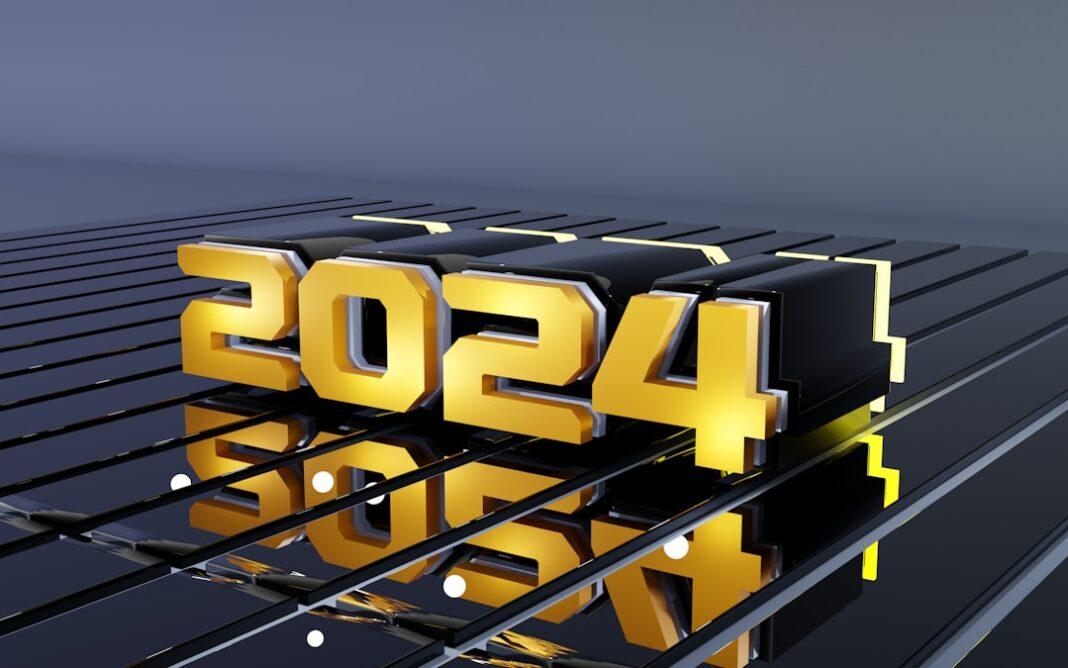New York freelancers live at the intersection of hustle and innovation. Whether you’re pitching clients from a WeWork in SoHo or sending invoices between subway stops, the right tech stack can decide whether you thrive or merely survive. 2025 has delivered a fresh wave of apps, platforms and AI-powered helpers that are tailor-made for the city’s unique cadence—fast, noisy, expensive and relentlessly competitive.
Contents
- Understanding the 2025 Freelance Landscape in New York
- Key Components of a New York Freelancer’s Tech Stack
- 1. Notion AI – All-in-One Workspace & Client Portal
- 2. Mercury + Column Tax – Banking & Quarterly Estimates
- 3. Bonsai – Contracts, Invoicing & Escrow
- 4. Motion – AI Calendar & Project Forecasting
- 3>5. Setmore – Localized Booking & NFC Tap Cards
- 6. Riverside.fm – Studio-Quality Remote Recording
- 7. Toggl Track – Time & NYC Minimum Wage Compliance
- 8. Wise (formerly TransferWise) – Multi-Currency Invoicing
- 9. Loom – Async Video Updates for Time-Zone-Straddling Clients
- 10. Pitch – Collaborative Decks for Investor & Client Meetings
- 11. ClickUp 3.0 – Unified Project Management
- 12. GrammarlyGO – On-Brand AI Writing Assistant
- 13. Buffer – Hyper-Local Social Scheduling
- 14. Otter.ai – Live Transcription for Client Workshops
- 15. 1Password 8 – Zero-Trust Security for Shared Client Logins
- Benefits and Importance of Curating the Right Stack
- Practical Applications & Real-World Workflows
- Frequently Asked Questions
- What is the most cost-effective starter stack for a brand-new NYC freelancer?
- How do these tools handle NYC sales tax on digital services?
- Can I use these tools for team-based projects?
- Are there mobile-first alternatives for commuters?
- How secure is Mercury compared to Chase or Citi?
- What happens if a client refuses to pay despite Bonsai’s contract?
- Do any tools offer discounts for NYC-based freelancers?
Understanding the 2025 Freelance Landscape in New York
In the five boroughs, independent contractors now outnumber traditional employees in several sectors, including creative, tech and professional services. Remote-first companies still hire globally, but local brands want talent that understands New York’s pace, culture and tax quirks. The result is a hybrid demand: clients expect you to be available for in-person brainstorms at 9 a.m. and asynchronous Slack replies at 9 p.m.
Against that backdrop, the tools you choose must:
- Handle multi-state and NYC-specific tax rules
- Integrate with local banking (Chase, Citi, AmEx, Mercury)
- Support fast mobile workflows—because Wi-Fi on the F train is still hit-or-miss
- Deliver enterprise-grade security without enterprise-level complexity
Key Components of a New York Freelancer’s Tech Stack
Below are the Top 15 Online Business Tools that meet the above criteria and have proven their worth in 2025’s market. Each entry includes:
- Core function
- NYC-specific use case
- 2025 pricing snapshot
- Hidden pro tip
1. Notion AI – All-in-One Workspace & Client Portal
Notion has evolved from a note-taking app into a full operating system for freelancers. The 2025 AI add-on can summarize meeting notes, generate proposals and even build lightweight CRM databases in seconds. For New Yorkers juggling multiple gigs, the new “NYC Freelance OS” template includes pre-formatted 1099-K trackers that comply with state thresholds.
- Pricing: Free for personal use, $10/user/month for AI features
- Pro tip: Create a shared Notion page for each client and grant view-only access; it reduces email back-and-forth by 40 %.
2. Mercury + Column Tax – Banking & Quarterly Estimates
Traditional banks still charge for ACH and wire fees that eat into tight margins. Mercury offers zero-fee business checking and instant virtual cards. Pair it with the newly integrated Column Tax engine to auto-calculate quarterly NYC + NY State estimates and pay them in one click from your dashboard.
3. Bonsai – Contracts, Invoicing & Escrow
Freelancers in media and design often get burned by late-paying SoHo agencies. Bonsai’s 2025 update adds NYC-specific late-fee clauses that reference the Freelance Isn’t Free Act. Escrow integration with Stripe now releases funds 24 hours after client approval—crucial when rent is due on the 1st and client vacations in the Hamptons.
4. Motion – AI Calendar & Project Forecasting
Instead of color-coding calendars manually, Motion’s AI reschedules tasks when MTA delays wreck your commute. It syncs with Google Calendar, Outlook and even Citibike availability, then suggests optimal work blocks at your favorite Brooklyn café.
3>5. Setmore – Localized Booking & NFC Tap Cards
Photographers and wellness coaches love Setmore’s new NFC Tap Cards. Hand a prospect a sleek card during a rooftop networking event; they tap their phone and land on your booking page pre-filtered for EST timezone and in-studio options near Union Square.
6. Riverside.fm – Studio-Quality Remote Recording
With podcast budgets rebounding, clients expect broadcast-grade audio even when you’re recording in a Harlem walk-up. Riverside’s 2025 update supports 4K video and local recording to bypass spotty Spectrum internet. The Magic Editor auto-removes “uhms” and reduces echo from exposed-brick walls.
7. Toggl Track – Time & NYC Minimum Wage Compliance
New York’s Freelance Worker Protection Act requires detailed time logs if you bill hourly. Toggl Track’s new NYC Compliance Report exports data in the exact format demanded by the Department of Consumer Affairs, saving you from potential $250 penalties.
8. Wise (formerly TransferWise) – Multi-Currency Invoicing
Working with EU startups while living in Astoria? Wise’s 2025 borderless accounts now support instant USD-to-EUR conversions at mid-market rates and generate NY State-compliant invoicing PDFs. The debit card works at every bodega ATM—no foreign-transaction fees.
9. Loom – Async Video Updates for Time-Zone-Straddling Clients
When your client’s HQ is in London but insists on 8 a.m. EST stand-ups, Loom lets you record a polished walkthrough overnight. The new AI filler-word removal and auto-generated NYC-friendly captions (complete with subway chime sound replacements) keep your brand professional.
10. Pitch – Collaborative Decks for Investor & Client Meetings
The 2025 template gallery includes NYC Startup Pitch themes that auto-insert skyline GIFs and MTA color palettes. Real-time editing means your cofounder in Bushwick and your designer in Jersey City can tweak slides while you’re stuck on the L train.
11. ClickUp 3.0 – Unified Project Management
ClickUp’s 2025 redesign eliminates the bloat that scared off early adopters. New “Freelance Lite” workspace offers kanban, docs and time tracking without the enterprise noise. Integrate it with your landlord’s email to auto-create tasks for rent reminders.
12. GrammarlyGO – On-Brand AI Writing Assistant
Whether you’re crafting cold emails from a Long Island City co-working space or writing SEO blogs at 2 a.m., GrammarlyGO now learns your brand voice by scanning previous Notion pages and Google Docs. It suggests punchy, New York-style subject lines like “Quick Q from the LES—5 min read”.
Buffer’s new geo-targeting lets you queue posts for peak NYC engagement windows (8 a.m. subway scroll, 1 p.m. lunch swipe, 6 p.m. commuter doom-scroll). The AI hashtag generator adds trending tags like #MadeInNY or #BrooklynCreatives.
14. Otter.ai – Live Transcription for Client Workshops
Conducting a discovery workshop at a noisy café near Union Square? OtterPilot joins Zoom, Meet or in-person recordings and delivers speaker-labeled transcripts within minutes. Export highlights to Notion and auto-generate project roadmaps.
Clients will inevitably hand you credentials to their Shopify, Webflow or AWS accounts. 1Password’s 2025 update includes SSH key management and breach alerts sourced from dark-web NYC hacker forums. Travel Mode hides sensitive vaults when you cross borders for that Montreal creative retreat.
Benefits and Importance of Curating the Right Stack
Choosing the correct combination of these tools delivers measurable ROI:
- Time Savings: Motion and Otter.ai alone reclaim 7–10 hours per week—equivalent to one extra client project monthly.
- Cash-Flow Control: Mercury + Bonsai reduce average payment delays from 27 days to 6 days, critical when NYC rent averages $3,500 for a studio.
- Compliance Confidence: Toggl Track and Bonsai’s city-specific legal templates shield you from $1,000+ fines under local labor laws.
- Brand Elevation: Pitch and GrammarlyGO ensure every touchpoint—from decks to DMs—feels premium, justifying higher rates.
Practical Applications & Real-World Workflows
Below are three day-in-the-life scenarios showing how New York freelancers combine the tools above for maximum impact.
Scenario 1: Graphic Designer in Bushwick
- 7:30 a.m. – Motion reschedules morning tasks after an MTA alert on the L line.
- 8:00 a.m. – Opens Notion client portal, reviews overnight feedback and uses AI to draft a follow-up email.
- 10:00 a.m. – Records a Loom video walking the client through three logo concepts; shares link via Bonsai contract page.
- 12:30 p.m. – Uses Setmore NFC card to book a same-day photoshoot with a nearby DUMBO brand.
- 3:00 p.m. – Tracks retouching hours in Toggl Track under NYC-compliant project codes.
- 5:00 p.m. – Generates invoice in Bonsai; Mercury auto-pushes 30 % to Column Tax for Q3 estimates.
- 7:00 p.m. – Schedules Instagram posts in Buffer with geo-targeted hashtags for NYC nightlife crowd.
Scenario 2: Content Marketer in Harlem
- Uses Riverside.fm to interview a fintech founder in London at 9 a.m. EST, while neighbor’s dog barks in background—local recording saves the audio.
- Otter.ai transcript feeds into GrammarlyGO, which rewrites the blog post in the client’s brand voice.
- Pitch deck created collaboratively with editor in Queens; finalized via mobile app on the 4 train.
- Client pays via Wise in GBP; funds hit Mercury account within 2 hours at mid-market rate.
Scenario 3: Full-Stack Developer in Astoria
- SSH keys to client’s AWS environment stored in 1Password; alerts trigger when credentials appear on dark web.
- ClickUp 3.0 board visualizes sprint tasks; integrates with GitHub for automatic status updates.
- Stand-up updates recorded on Loom for San Francisco team 3 hours behind.
- End-of-month hours exported from Toggl Track to CSV ready for 1099-K filing.
Frequently Asked Questions
What is the most cost-effective starter stack for a brand-new NYC freelancer?
Start with Notion (free) + Mercury (free) + Toggl Track (free). These three cover project management, banking and time tracking without monthly fees. Upgrade to paid tiers once monthly revenue crosses $3 k.
How do these tools handle NYC sales tax on digital services?
Bonsai now auto-calculates NYC digital service tax (4.5 %) and NY State sales tax (4 %) on invoices when the client’s billing address is within the five boroughs. You can toggle it off for out-of-state clients.
Can I use these tools for team-based projects?
Yes. ClickUp, Notion, Pitch and Motion all offer granular permission levels. Invite clients as guests to specific pages or boards while keeping internal budgets private.
Are there mobile-first alternatives for commuters?
Most listed tools have robust iOS/Android apps. Motion, Otter.ai and Buffer are especially commuter-friendly and work offline in subway dead zones, syncing once you resurface.
How secure is Mercury compared to Chase or Citi?
Mercury is FDIC-insured through partner banks, offers 2FA via hardware keys and has SOC-2 compliance. For large balances above $250 k, you can enable treasury accounts that sweep funds into government-backed securities.
What happens if a client refuses to pay despite Bonsai’s contract?
Bonsai partners with NYC Small Business Services to escalate non-payment claims. You can file directly within the app; the city provides free mediation and, if needed, legal representation up to $25 k.
Do any tools offer discounts for NYC-based freelancers?
Yes. Notion offers 50 % off for “Made in NY” card holders, and Mercury grants $300 in credits through the NYC Tech Talent Pipeline. Check each vendor’s “community” or “startup” program



